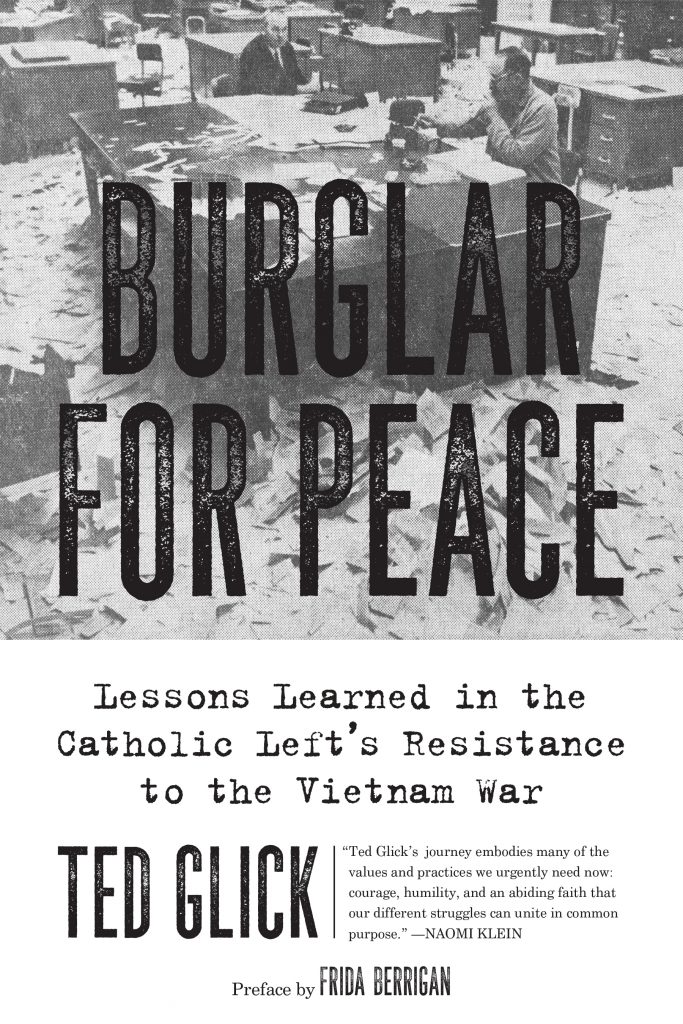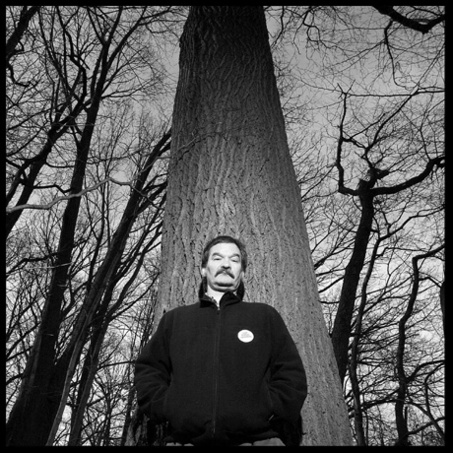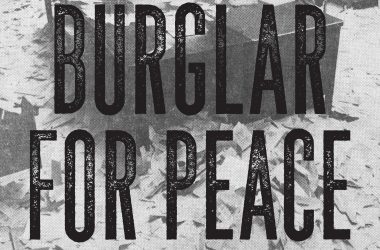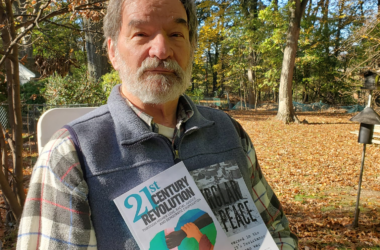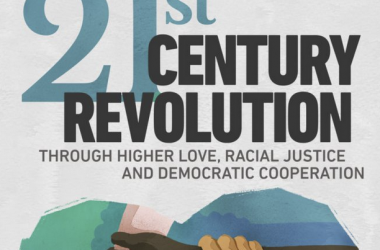By Ted Glick
August 1st, 2021
July 21st was the 42nd anniversary of my and my wife Jane Califf’s 1979 wedding. 20 years later, in 1999, we had a 20th anniversary gathering in our backyard in northern New Jersey with about 50 of our closest friends and relations. We filmed that event, and last evening, for the first time in 22 years, we watched it.
We were all eyes and ears as the video showed the circle of participants. About a quarter of those present then are no longer alive. Everyone else, of course, was 22 years younger, some of whom, today, are having their significant life and medical issues. It was a startling reminder of the reality of mortality all of us must deal with.
In the video Jane and I re-read the vows we had taken 20 years before, and last evening we felt like we had done a pretty good job sticking to them. In the video we also each reflected out loud with our 20th anniversary thoughts and feelings, there together with those we considered part of our extended family, whether by blood or otherwise.
One of things I spoke about was the importance of connections—connections to family and friends, connections to the natural world, connections to those who have come before us, and connections to those coming after us. I said that our marriage was able to survive and deepen in large part because Jane and I consciously worked at maintaining all of those connections over the years.
In 1997, a couple years before this 20th wedding anniversary event, I wrote a poem about connections, Our Awesome Task. These were the concluding verses:
“Where do we look for strength in times like these–hard times, struggling times, fighting-seemingly-insurmountable-odds times?
“To one another, as we learn the “to” (one another) and not the “on” that has been
our history on the Left, within the union structures, in our other organized efforts–the competition, the pettiness, the backstabbing, the dishonesty–a history that must be, and fortunately is, being transcended.
“Some find strength in spiritual traditions, even rituals, connecting us to one another, to those before, to the natural world.
“Some love and meditate on “God”–Truth, Justice, Compassion–(“And what does God require of you but to do justice, and to love kindness, and to walk humbly with your God?”) —with all their heart and soul, and their neighbors as themselves, fulfilling Humankind’s Greatest Commandment.
“Some gather children, grandchildren, neighbor children, friends’ children, students
around them–‘and the little children shall lead them.’
“And some of us just muddle along, doing the best we can, learning from history,
understanding the historical truth, the law of physics, that for every action there is a reaction–that oppression breeds resistance–that, as Dr. King said, “The arc of the universe is long, but it bends toward justice.”
“Accepting–we have no choice!–our limitations, our limited power right now, while never accepting injustice and evil, the evil system we must transform;
“Using our anger, our outrage, our humanity, our love, burning like a low flame, a pilot light, flaring up as necessary into a burning torch to lead others into a future, a future world, we must, we have to, claim and win.”
The poem articulates a macro overview of ways that we can keep the faith and keep going despite all the many obstacles we encounter. But, ultimately, keeping the faith requires each of us to develop specific daily or weekly ways to keep the higher purposes, Higher Love, foremost in our consciousness.
Howard Thurman, an African American minister who was active in the 60s Black Freedom Movement and a close friend of Martin Luther King, Jr., has written very perceptively and non-religiously about this way to “regain perspective:”
“The restlessness of our age, the churning tumult of our times, the quiet frustrations and the riotous frustrations in the midst of which we live, all these surround us in the quietness, and yet we recognize the privilege of unhurried contemplation, of laying ourselves bare to the searching processes of singleness of mind, the privilege of becoming aware of needs of which we are scarcely conscious in our fevered rush, the privilege of hearing voices that need not speak above a whisper in our hearts, pointing us to the way that we should take in the midst of our own problems and responsibilities, our own hopes, and our own fears. The time of regaining of quiet. The time of searching of heart. The time of regaining of perspective. The time of lifting of hopes about ourselves and the world. The time of insight. The time of the renewal of courage.”
-Howard Thurman, Sermons on the Parables **
In this “churning tumult of our times,” we must daily strive to let our inner light shine, an inner light kept alive not by accident but by conscious intention, in whatever ways we each determine to do so.
**Sermons on the Parables, edited by David B Gowler and Kipton E. Jensen, Maryknoll, NY: Orbis Books, p. 5
Ted Glick is a volunteer organizer with Beyond Extreme Energy and author of Burglar for Peace: Lessons Learned in the Catholic Left’s Resistance to the Vietnam War, published last year. Past writings and other information can be found at https://tedglick.com, and he can be followed on Twitter at https://jtglick.com.
